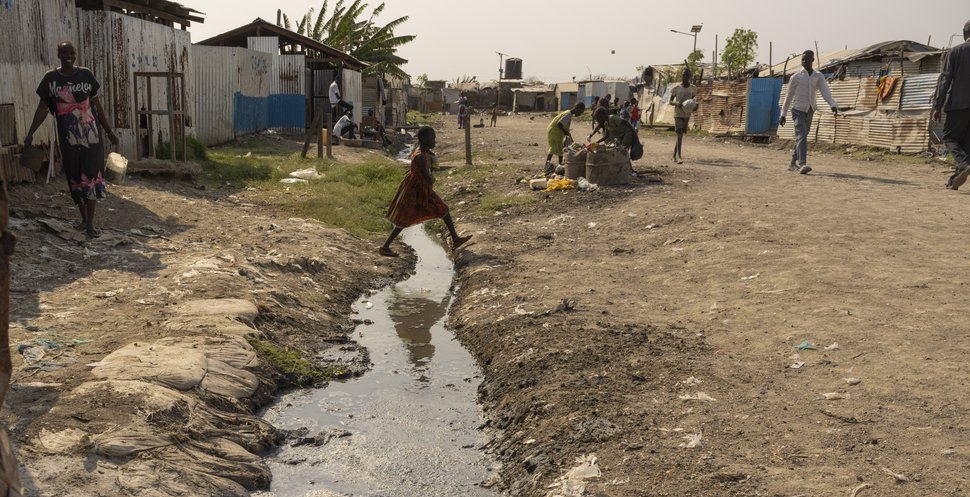Opinion
It is time to fix the broken system that fuels rising inequality

Cover of “Tacking inequality at its epicentre” report. (Photo by Håvard Bjelland / Norwegian Church Aid)
The levels of debt servicing in Eastern and Southern Africa have risen dramatically in recent years, with 40 per cent of countries in the region spending more on paying off their debt than on education and health combined in 2024. Coupled with huge losses to tax abuse by multinational companies and wealthy individuals, the impact on government budgets is significant and needs to be addressed.
This is among the factors that have increased the gap between the rich and the poor which has widened significantly over the past decades, with wealth concentrated in the hands of a few while millions struggle to make ends meet. This process happens internationally as well as within countries. This disparity not only hampers economic growth but also exacerbates social tensions and undermines democratic institutions.
Eastern and Southern Africa, where we have worked for decades, is one of the regions experiencing extreme levels of inequality. In our recently published report, “Tacking inequality at its epicentre,” we find that two-thirds of countries in those regions experience high inequality. The richest 1 per cent control 20 per cent of income across the regions. In Southern Africa, the situation is even more extreme, with the top 10 per cent owning nearly 85 per cent of all wealth and the richest 1 per cent holding more than half. The bottom 50 per cent have a negative net worth of -1.7 per cent, meaning they have more debts than assets. These are extreme examples, but we know that rising inequality is a global trend affecting all regions.
Rising inequality is not a law of nature. Political will and the correct policy measures can mitigate inequalities at the national level and, as shown in the report, there are positive examples. But for many governments, the ability to respond to the worrying trend of rising inequality is severely limited by mounting debt burdens, tax abuse by multinational companies and wealthy individuals, austerity pressure, a difficult global economic climate, and foreign aid cuts.
Public services to reduce inequality
Quality public services, in particular health services and education that are accessible to all, are the most effective tool for fighting inequality, while also building the human resources that are necessary for economic development. When countries are forced to cut social spending because of a tightened fiscal space, it affects children’s opportunities to learn, people’s access to healthcare and the countries’ long term growth. Moreover, cuts to public services disproportionately affect women and undermine efforts to increase gender equality, as they limit women’s access to employment opportunities, increase unpaid care responsibilities, and hinder access to education and training.
As citizens of Nordic countries, we know from our own experience how important universal access to public education and health services are for the welfare and economic progress of our societies. Given our countries’ long tradition of solidarity with and support to developing countries, we expect our political leaders to do everything they can to make sure that people in the Global South are not denied access to such essential services.
At this critical point in time, we had hoped for an ambitious and transformative outcome to reform the broken international financial system at the Fourth UN Conference on Financing for Development (FFD4). As the document that was adopted last week is far less ambitious than is needed to meet current challenges, we call for the Nordic governments to push strongly to ensure Africa receives deep debt cancellation rapidly, building on the commitments in the Compromiso de Sevilla for Action:
- Tackle the Debt Crisis: Governments must agree on a new global framework for managing sovereign debt. This framework should include mechanisms for debt relief and restructuring to ensure that countries can invest in essential services and development.
- Ensure Commitment to Official Development Assistance (ODA): Governments must not abandon their commitments to Official Development Assistance. ODA is crucial for supporting development projects and providing the necessary resources to tackle inequality.
- Support the UN Tax Convention: Governments should back the UN Tax Convention to close loopholes in the international tax system. This will help prevent tax abuse by multinational corporations and wealthy individuals, ensuring that governments have the revenue needed to fund public services and reduce inequality.
Addressing inequality is not just a matter of justice; it is essential for achieving sustainable development, building inclusive societies and for economic stability. The FfD4 process provides a unique opportunity to mobilize resources and political will to tackle inequality in all its forms. By prioritizing policies and investments that promote equity and inclusion, we can build a more just and prosperous world for future generations.
____________________________________________________________________
Henriette Westhrin, CEO of Save the Children Norway
Erik Lysén, Director of Act Church of Sweden
Anne Cecilie Kaltenborn, Secretary General of Norwegian Church Aid
Pauliina Parhiala, Executive Director of Finnish Lutheran Church Mission (Felm)
